In the contemporary global landscape, outsourcing has become a vital component of operations for numerous organizations. The estimated size of the global IT services outsourcing market was USD 525 billion in 2022, and it is projected to reach approximately USD 1,149.24 billion by 2032. The sector is anticipated to grow at a CAGR of 8.2% from 2023 to 2032.
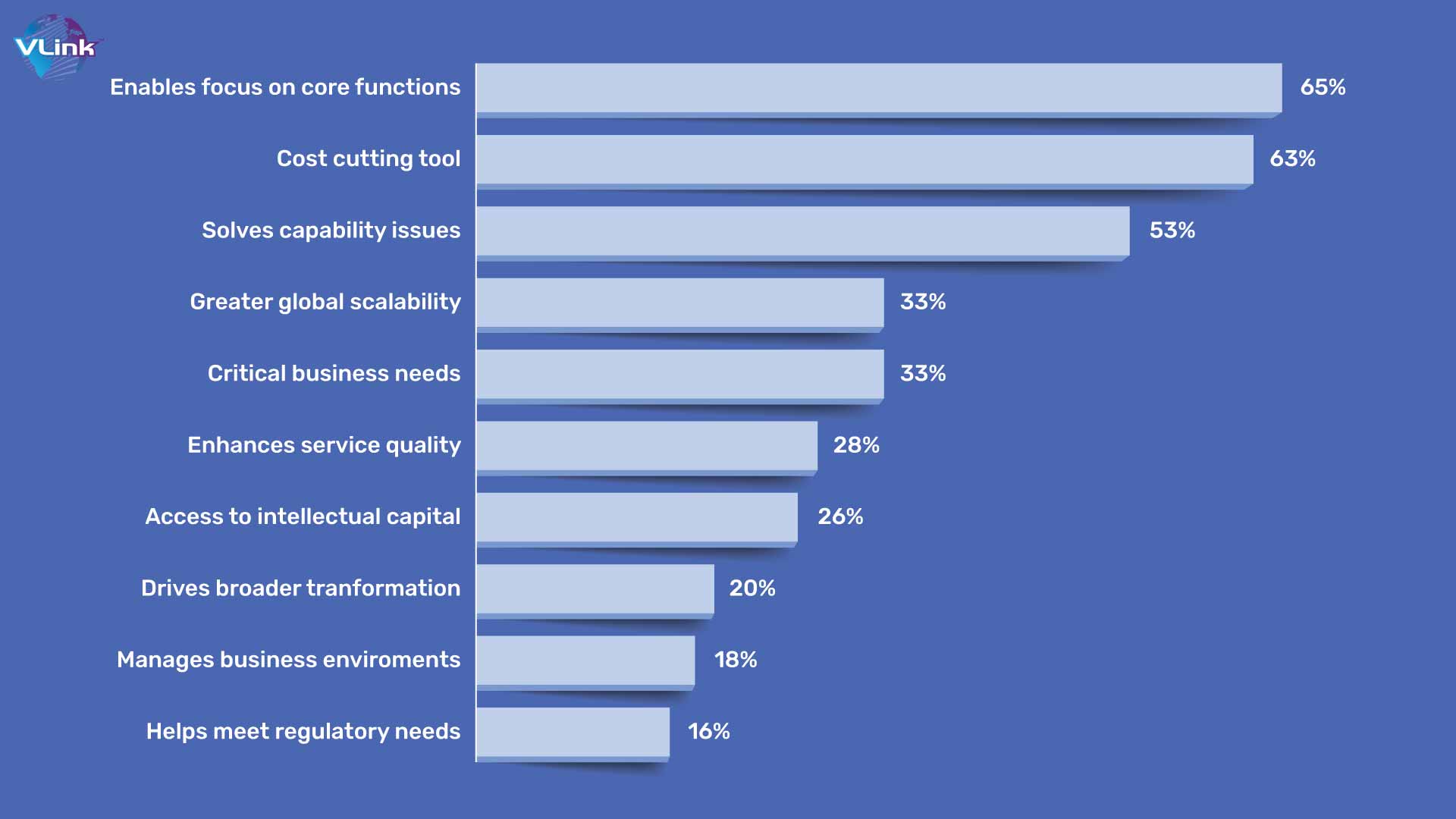 When businesses contemplate outsourcing, they frequently encounter the pivotal choice of onshore versus offshore outsourcing. This decision is significant for many companies as they scale up.
When businesses contemplate outsourcing, they frequently encounter the pivotal choice of onshore versus offshore outsourcing. This decision is significant for many companies as they scale up.
As a business owner, you can opt for offshore processes by relocating them outside your home country or pursuing onshore expansion within your country. Both are prevalent business models contributing to enhancing a company's financial performance.
So, how do you select one for your business?
This blog will delve into offshore and onshore processes, providing detailed insights. We will discuss the prevalent services, as well as the pros and cons of both approaches, empowering you to make an informed decision.
Let's get started!
IT Outsourcing Market Stats 2024 & Beyond 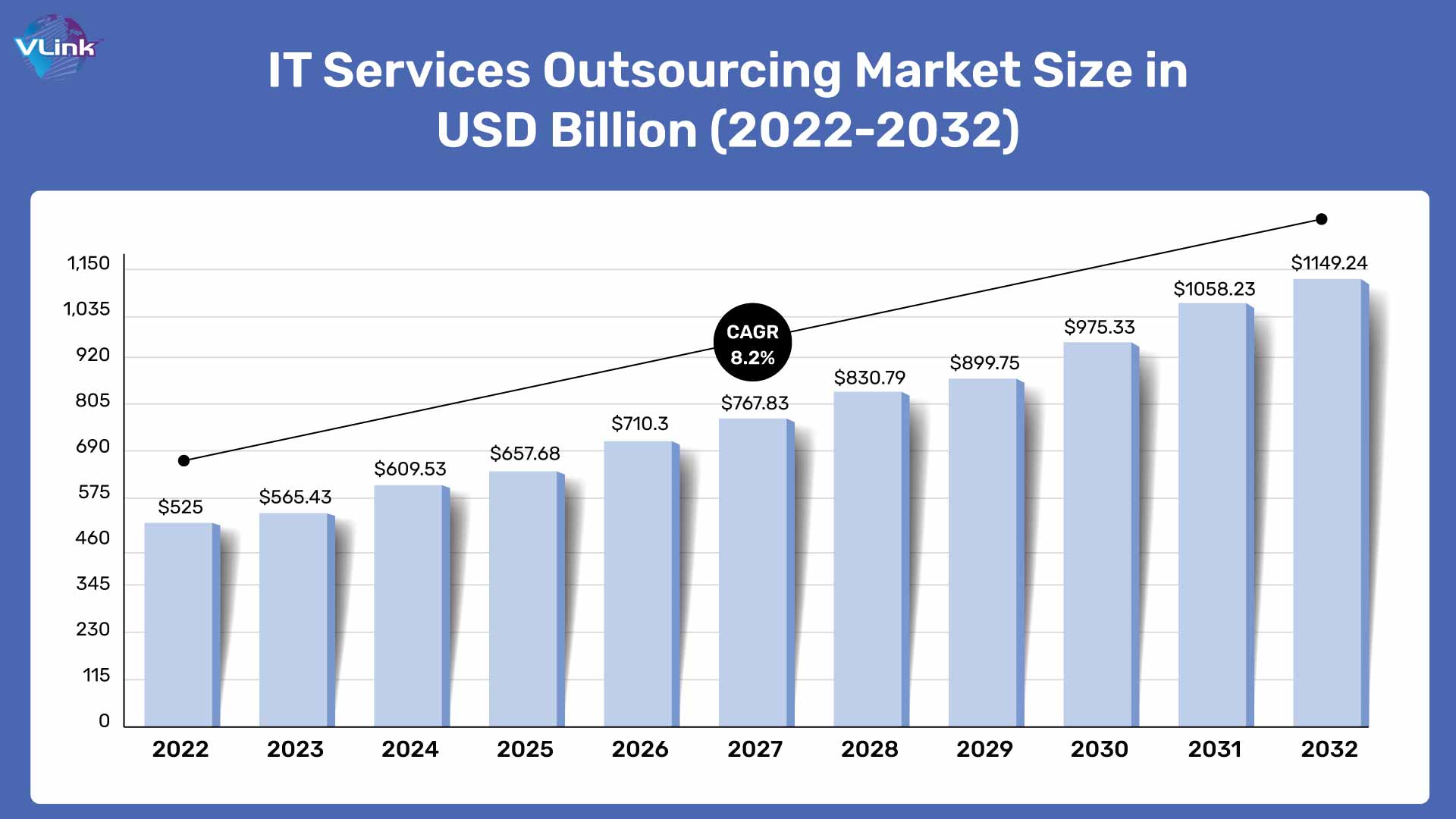
Around 70% of companies outsource software development to reduce expenses and save costs.
Companies can save around 40% - 70% of overall costs with an offshore software development firm.
Nearly 78% of companies that outsource work have a positive experience with their partners.
The global IT outsourcing market achieved a value of USD400 billion in 2022, and projections from experts anticipate a rise to USD587 billion by the year 2027.
United States generated USD167 Billion market revenue in 2023 and expected to rise USD278 Billion by 2028.
What is Onshore Outsourcing?
Onshore outsourcing, or domestic outsourcing, involves contracting services to a third-party provider within the same country as the hiring company. This model emphasizes proximity, cultural alignment, and shared language. So, businesses can easily build and maintain outsourced development team by ensuring regulatory compliance, and collaborating effectively while leveraging local expertise.
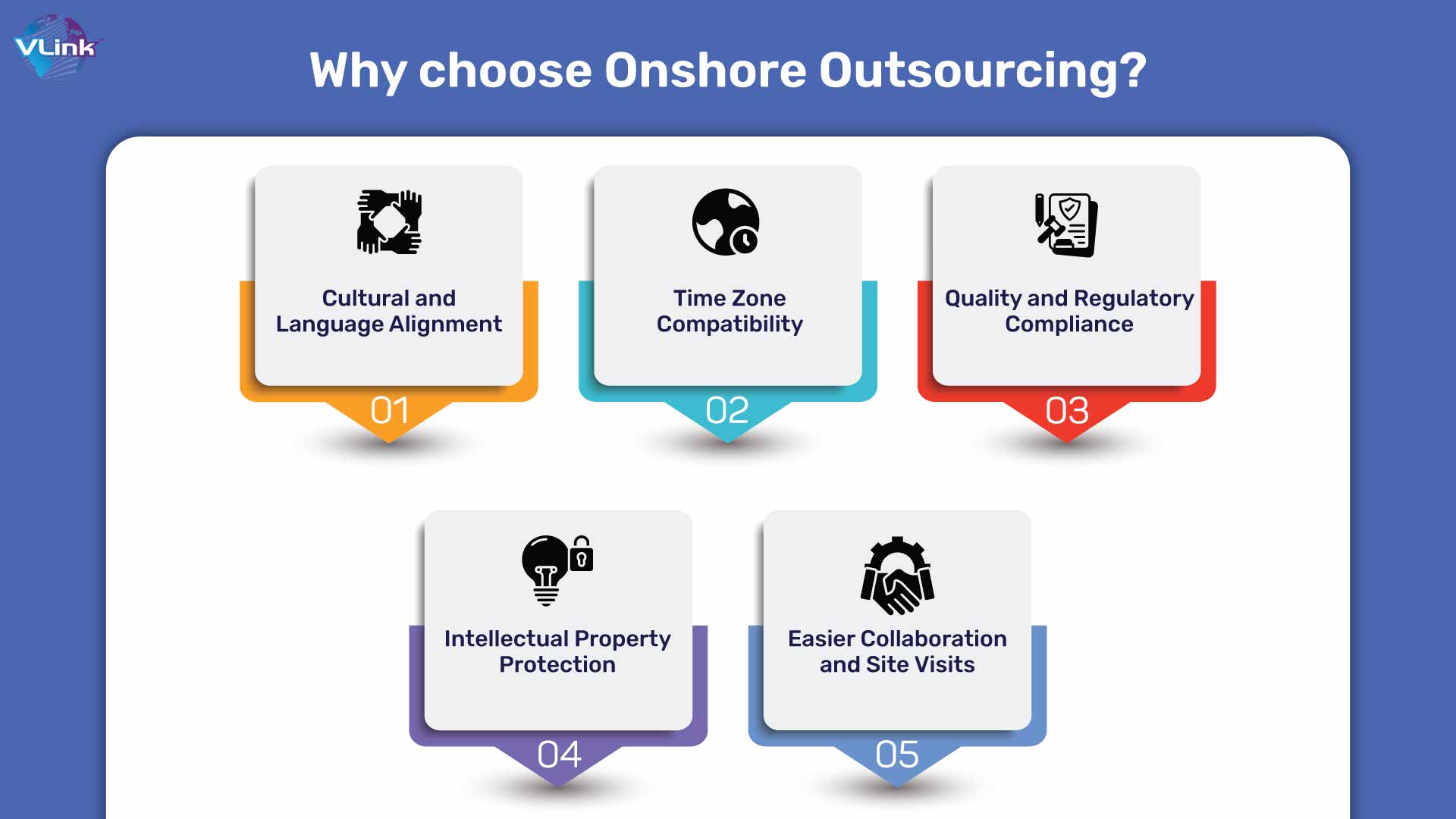
There are several reasons why businesses might choose top strategies for outsourcing software development projects:
Cultural and Language Alignment
Onshore outsourcing frequently entails collaboration with teams that share a common culture and language. It fosters enhanced communication, understanding, and collaboration between the client and the outsourcing team.
Cultural alignment plays a crucial role in preventing misunderstandings and ensuring that work aligns with the client's expectations.
Time Zone Compatibility
Onshore outsourcing commonly entails operating within identical or closely aligned time zones. It facilitates real-time collaboration and quicker response times. With overlapping working hours, there are minimal delays in communication and issue resolution. It enables prompt feedback and adjustments to occur during standard business hours.
Quality and Regulatory Compliance
Onshore outsourcing offers an increased level of quality assurance and compliance with regulatory standards. The outsourcing team is frequently well-versed in local regulations and industry standards, particularly crucial in sectors with stringent compliance requirements. It diminishes the risk of legal issues and ensures that the work aligns with essential quality benchmarks.
Intellectual Property Protection
Concerns over the safeguarding of intellectual property often arise when businesses consider outsourcing. Onshore outsourcing offers enhanced security, as legal frameworks and measures for intellectual property protection within the same country are usually more familiar and dependable. It holds particular significance for industries dealing with sensitive or proprietary information.
Easier Collaboration and Site Visits
Proximity enhances collaboration and facilitates site visits, making face-to-face meetings, training sessions, and regular check-ins more convenient and cost-effective in onshore outsourcing. Being in the exact geographical location fosters more robust relationship building and a more profound sense of partnership between the client and the outsourcing provider.
Pros | Cons |
Language and cultural compatibility | Higher labor costs |
Convenience | Limited access to skills |
Time Zone Alignment | Reduced Time Zone Flexibility |
What is Offshore Outsourcing?
Offshore outsourcing involves contracting business processes or services to a third-party provider located in a different country. This strategic practice is often pursued to reduce costs, access specialized skills, and increase operational efficiency despite geographical distance and potential differences in time zones and cultures.
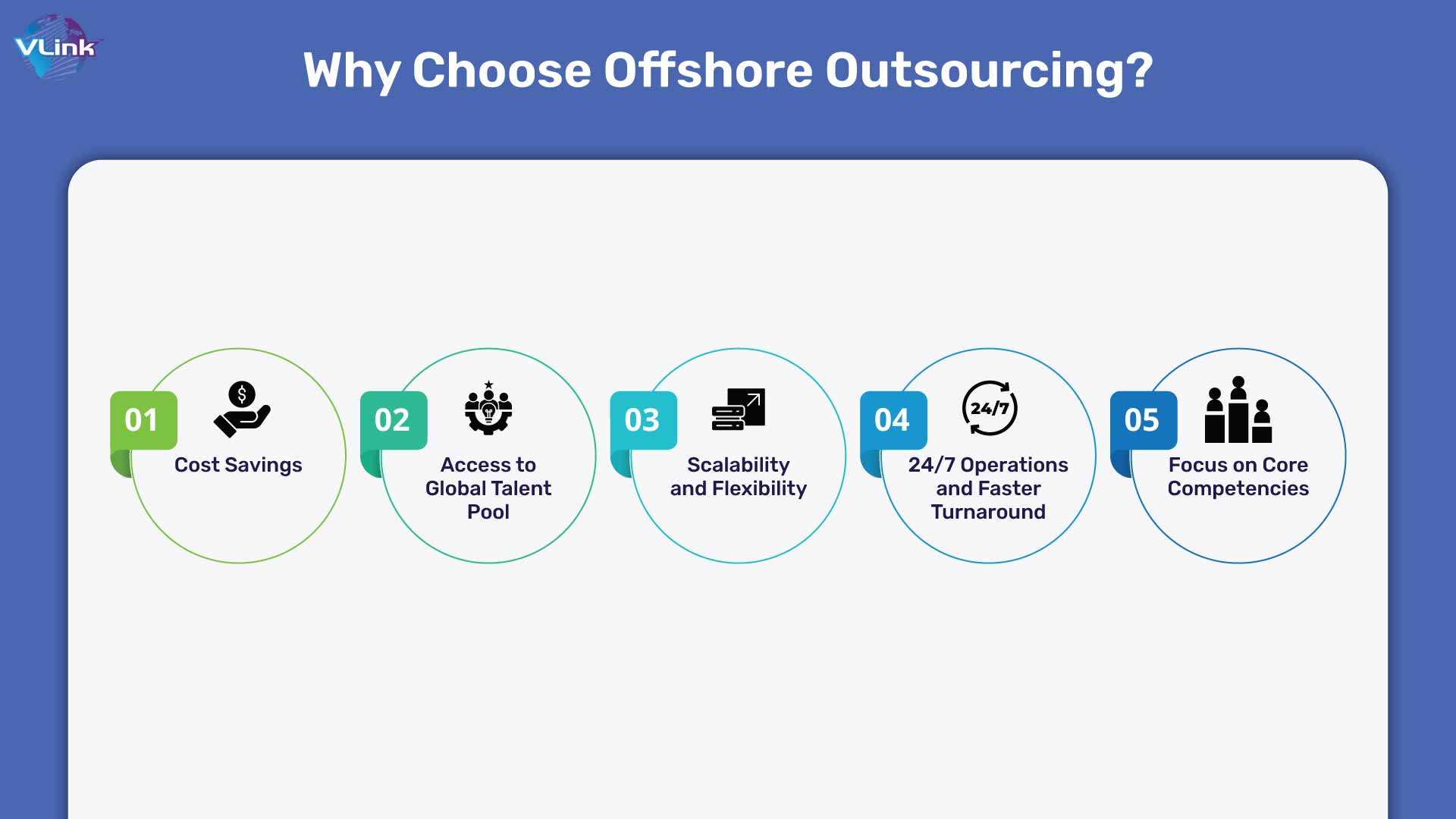
Cost Savings
Cost savings constitute a significant incentive for offshore outsourcing, as labor expenses in specific nations can be notably lower than those in the client's home country. It enables businesses to avail themselves of skilled talent at a more budget-friendly rate, rendering offshore outsourcing an appealing choice for tasks amenable to remote execution.
Access to the Global Talent Pool
Offshore outsourcing empowers companies to harness a broad and diverse global talent pool. It proves exceptionally advantageous for acquiring specialized skills and expertise that might not be locally accessible. Firms can capitalize on the knowledge and capabilities of professionals from various regions to elevate the quality of their projects.
Scalability and Flexibility
Offshore outsourcing affords businesses the flexibility to adjust the scale of their operations in response to project demands. This scalability proves particularly valuable in managing workload fluctuations, enabling companies to swiftly adapt to changing business requirements without the necessity for extensive hiring or downsizing endeavors.
24/7 Operations and Faster Turnaround
Time zone variances between the client and the outsourcing provider can be advantageous. Offshore teams can advance projects during the client's in-house team's offline hours, facilitating round-the-clock operations. It can result in accelerated project turnaround times as work progresses seamlessly across diverse time zones.
Focus on Core Competencies
Offshore software development empowers businesses to prioritize their core strengths by assigning non-core responsibilities to external specialists. It enables companies to focus on strategic initiatives, innovation, and activities, directly enhancing their competitive edge. Outsourcing routine or specialized tasks can result in heightened efficiency and productivity.
Pros | Cons |
Cost savings | Communication challenges |
Round-the-clock productivity | Difficulties around real-time communication |
Access to global talent | Quality control challenges |
With both pros and cons, you can check that onshore web development is replaced by offshore web development.
Onshore Vs. Offshore: Which One Is Right For You?
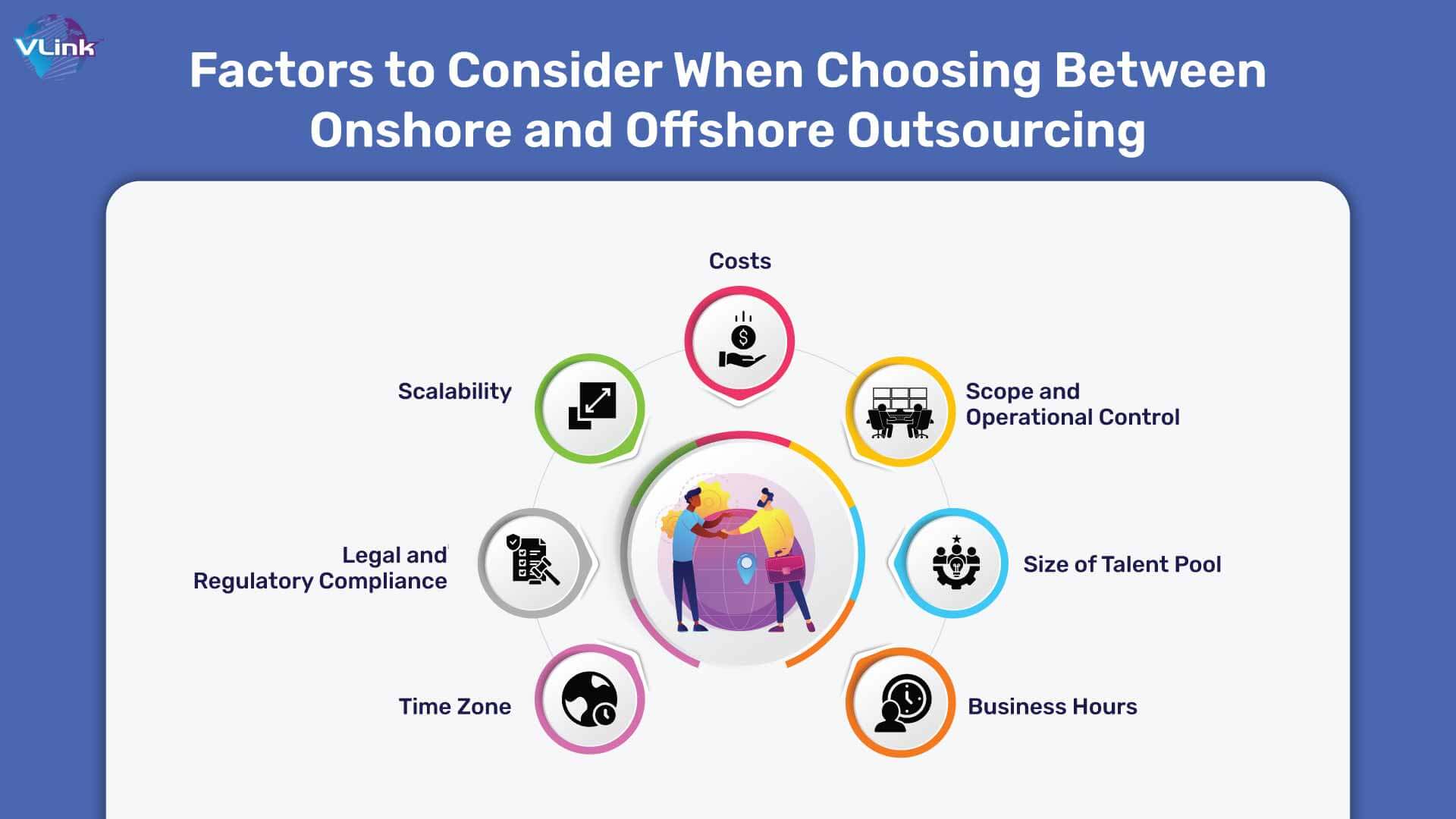
One of the critical advantages of onshore outsourcing lies in the proximity and alignment of time zones. When your outsourcing partner is easily reachable by phone and operates within the same working hours, project discussions can be conducted swiftly. For instance, opting for a local provider for customer support ensures quick issue resolution and accelerated response times.
Conversely, engaging an offshore partner may present challenges due to significant time zone differences. Collaborating across different time zones necessitates coordination efforts between the involved parties. While not impossible, it requires deliberate setup and management.
Maintaining adherence to legal and regulatory requirements is a fundamental element of any business undertaking. Opting for onshore outsourcing allows collaboration with service providers who possess in-depth knowledge of local laws and regulations, resulting in reduced legal risks. In contrast, offshore companies may not be as well-informed in this regard.
Consider a scenario where a healthcare organization intends to outsource medical billing services. Selecting an onshore service provider that is well-versed in and compliant with local healthcare regulations guarantees the confidentiality and safeguarding of sensitive patient data.
Differences in scalability distinguish these outsourcing models.
In onshore outsourcing, the availability of talent can be constrained in specific regions, making it more expensive, time-intensive, and challenging to rapidly or substantially expand.
On the other hand, offshore outsourcing provides greater flexibility in scaling up a team or project due to access to a larger talent pool.
A major factor for offshore outsourcing is significant cost savings. Offshore destinations often boast lower labor expenses compared to their onshore counterparts, enabling substantial reductions in operational costs.
By tapping into the expertise of skilled professionals in offshore locations, you can leverage their capabilities at a fraction of the cost you would incur locally. This cost advantage allows for more efficient budget allocation, freeing up resources that can be redirected to other aspects of your business, such as innovation or expansion.
Consider a technology startup with limited financial resources. By outsourcing software development to an offshore location renowned for its pool of skilled developers, the startup can access high-quality talent while maintaining cost control. The resulting savings can then be directed towards marketing initiatives or enhancing products, fostering business growth.
The level of control you aim to retain over your project plays a crucial role in choosing between onshore and offshore development. Opting for onshore software development provides the benefit of direct supervision and immediate access to the development team. It is especially advantageous for projects where close monitoring of progress, real-time feedback, and alignment with your vision are paramount.
The choice between onshore and offshore developers becomes pivotal when assessing the level of control required for your project. Onshore development offers immediate oversight, while offshore development may necessitate effective project management strategies to guarantee the precise execution of your vision.
The required expertise plays a significant role in shaping your decision between onshore and offshore development. Opting for offshore development becomes appealing when your project requires skills that are scarce locally. Offshore teams provide access to a diverse global talent pool, ensuring you can secure experts with the exact skills needed for your project.
Onshore | Offshore |
Limited availability of local talent | Global talent pool beyond geographical area |
Extra time and effort required to locate specialists with niche qualifications. | Specialized experts with specific expertise |
Skill limitations may compromise on quality | Improved Project Quality |
Difference Between Onshore Vs Offshore Software Development
Aspects | Onshore | Offshore |
Location | A team within the same country. | Setting up a team in a different country. |
Proximity | Streamlined and faster access to the development team. | Delays in communication and reporting |
Cultural Alignment | Shared cultural norms, languages, and business practices facilitate a smoother collaboration. | The outcome can be influenced by differences in culture, diverse work ethics, and ineffective time management practices. |
Communication | Boosts a deeper understanding with in-person communication opportunities. | Depends on digital communication tools, incorporating video conferences, emails, and chats to establish communication. |
Talent Pool | Limits the talent pool to the local workforce and restricts access to specialized skills. | Access to exceptional talent and expertise on a global scale beyond domestic borders. |
Language Barrier | minimal language barriers | Communication is challenging |
Time Zone Impact | Easy to hold meetings and maintain collaboration | Carefully meeting schedules to time zone variations. |
Work Cycle | Synchronizes with local business hours, facilitating convenient coordination. | 24-hour work cycle for potential time-saving benefits. |
How do you Find the Right Outsourcing Software Development Partner?
Here are a few steps to choose the correct vendor:
Check the company's portfolio and its app development process.
Compare the estimates they present for your app implementation.
Check their reviews and ask them for references.
Compare and check their ratings on directory sites, like Clutch, GoodFirms, G2, TopDevelopers, etc.
Protect your project idea by signing an NDA.
Choose VLink As Your Software Outsourcing Partner!
VLink provides numerous offshore benefits, distinguishing itself with exceptional connectivity and accountability compared to competitors.
In addition, we address communication issues, optimizing a significant portion of time for development and software work. Despite time zone disparities, the offshore development center efficiently handles tasks, minimizing communication delays and striving for optimal project delivery.
As a dedicated offshore development company, we deliver:
Cost-effective software development resources
Dedicated high-performing Agile Teams
Committed to the decided deadlines
Quick ramping up and seamless integration
Having knowledge of Java, Python, .NET, React, Flutter, Angular, Php, etc.
Our dedicated and passionate team is well-equipped to address all your company's software requirements. Benefit from a group of global software experts dedicated to your project.
We provide hassle-free, high-quality IT staff augmentation solutions, allowing you to concentrate on your business. Experience the transformative impact VLink can bring to your company's operations.





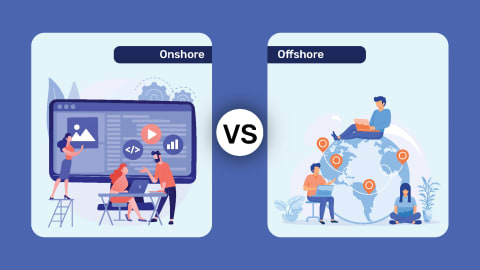



 Shivisha Patel
Shivisha Patel

















